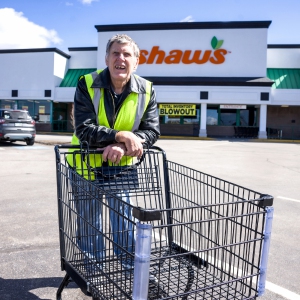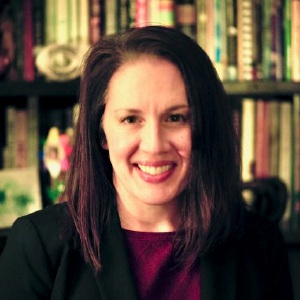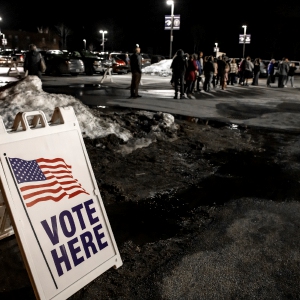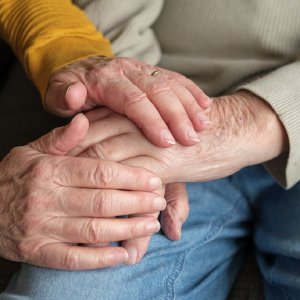Opinion: Activism at all ages
| Published: 07-02-2024 6:00 AM |
Donna Baker-Hartwell lives in East Andover.
What is a 68-year-old grandmother doing getting arrested by New York City police? Here’s my account of how I found myself in what I can only describe as a personal “perfect storm.”
In early 2023, I read an article calling out CitiBank, JP Morgan, Wells Fargo and Bank of America for being the four biggest investors in fossil fuel expansion, financing more than $1,363.7 billion since the Paris Climate Agreement (2016). 196 countries including the U.S. signed the PCA promising to decrease greenhouse gas and carbon dioxide emissions by 45 percent by 2030. According to the United Nations Climate Action report, burning fossil fuels is “by far” the greatest cause of global warming. Essentially, corporate greed is not only undermining international climate agreements but is funding climate catastrophe.
Written by Vermonter Bill McKibben (environmentalist, author, and co-founder of 350.org and ThirdAct.org) the article proposed that Americans, especially Americans over the age of 60, as it is estimated that this age group holds an estimated 70 percent of the country’s financial assets, move their money out of these banks and cut up their credit cards. I had a B of A card. A mass action done collectively might get the banks to change. The date was set for March 21, 2023.
On “32123,” more than sixty people, including myself, protested in front of Bank of America on Storrs Street in Concord. Several of us cut up credit cards. This action was the catalyst for organizing a Third Act New Hampshire Working Group. For the past year and a half, we have been growing the TA movement in our state and building a network with other climate and democracy groups. There are now 27 states with active Third Act working groups.
My daughter, Dr. Kayla Hartwell, is a primatologist and wildlife conservationist living in Belize. She’s witnessing the climate exponentially change. Belize typically experiences 5-10 days of heat wave temperatures. This year they are predicting 30 heatwave days. Temperatures of 107 degrees remained for three weeks in May. Most villagers do not have air conditioning (Kayla does not). The village water shuts down daily and electricity goes out regularly. Droughts are becoming more severe.
She works on a nature reserve, along with four others, for The Foundation for Wildlife Conservation. They have ongoing research projects, monitor bird migration, reintroduce rehabilitated howler monkey groups, lead field school studies, and advocate for wildlife conservation on a national level. Runaway Creek, the 6,000-plus acre savanna and rainforest, is home to more than 128 species of animals including holler and spider monkeys, 315 species of birds, and four species of cats.
Recently I was attending a three-day North-East Convergence gathering of Third Actors held at UMASS in Amherst. At the same time, I was getting messages from Kayla about a wildfire she was fighting on the reserve. Hundreds of acres were in flames. The FWC team was been trained in firefighting and had been recruited to fight the fire. She was on day five of 14-hour days. Exhausted and discouraged, she had not been able to locate a group of Howler monkeys.
Article continues after...
Yesterday's Most Read Articles
 After four decades collecting carts, Ricky Tewksbury will retire when Shaw’s closes mid-April
After four decades collecting carts, Ricky Tewksbury will retire when Shaw’s closes mid-April
 Written shooting threat sends Concord High students home early
Written shooting threat sends Concord High students home early
 Amy Doyle returns to Hopkinton School District to become next superintendent
Amy Doyle returns to Hopkinton School District to become next superintendent
 Concord Coach to resume daily bus service to New York City
Concord Coach to resume daily bus service to New York City
 Loudon school board member resigns; Merrimack Valley board accepting applications to fill seat
Loudon school board member resigns; Merrimack Valley board accepting applications to fill seat
In the evenings, after discussing strategies for building a fossil-free future and electing climate candidates with Third Actors, I FaceTimed with Kayla. I could see the fear and exhaustion in her face. She sent photos of burned terrapins that she found in the aftermath. After more than a week of searching, she found the Howler monkeys. They were clinging to a few green trees surrounded by burnt forest. The drought was relentless. The air quality in the villages and throughout Belize was unhealthy for many weeks.
On the last day of the conference, Bill McKibben attended. He emphasized the urgency of the climate crisis. He said we have four to five years to get global warming under control before it hits the tipping point. He suggested we continue to go after the dirty banks, the biggest investor being CitiBank, contributing $396 billion since 2016.
Bill ended with hope in the untapped potential of the sun. He said that all of our energy needs could be found in the sun if we chose to put technology and our human ingenuity into converting to solar and other green energy sources. The urgency of the crisis hit me hard. I thought of our grandchildren and what their futures might be like as life on our planet collapses. I thought about the charred turtle on the savannah and the monkeys clinging for life. I thought about how human activity and burning coal, oil and gas has caused irreversible damage.
I made up my mind. I would go to NYC and join the non-violent civil disobedience action at the headquarters of Citibank along with elders from across New England. On June 13, 60 elders were arrested for disorderly conduct and blocking the entrance to the bank. My husband and I were among them. We were handcuffed and transported to the police station for booking and spent two and a half hours behind bars before being released.
Citi employees arriving for work appeared rattled and uncomfortable as they watched us being escorted to police vans. The “Summer of Heat” campaign against dirty banks will continue. Two weeks into the campaign, more than 200 activists have been arrested. Taking action turns despair into hope. I am reminded of Pete Seeger’s song, “Step by step the longest march can be won…and by union what we will can be accomplished.”
There is so much at stake in this election year. I believe that the climate crisis should be the number one issue. We must demand of our government the promises made in the Paris Climate Agreement. We owe it to our grandchildren not to leave this planet without putting up a good fight to protect it.
I urge you to divest in dirty banks. We must not let our democracy fail.









 Opinion: HealthTrust's decision to drop anti-obesity medications is a step back in the fight against a chronic disease
Opinion: HealthTrust's decision to drop anti-obesity medications is a step back in the fight against a chronic disease Opinion: Courage and care count
Opinion: Courage and care count
